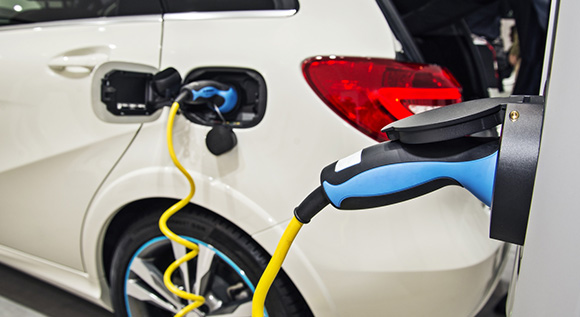Simple recharging
The roadside recharging points at which electric cars refuel have become a familiar sight in many places around Germany. The system is to be made simpler: soon, uniform socket standards will apply to all publicly accessible recharging points in Germany.
 © Fotolia.com/Eisenhans
© Fotolia.com/Eisenhans
Not every driver of an electric vehicle is used to being able to "fill up" at just any public recharging point - different sockets, special access procedures requiring a customer card, and complex billing procedures often prevent this. That is about to change. Soon, uniform socket standards are to apply to all publicly accessible recharging points in Germany.
"I am confident that better legal certainty will result in greater private-sector investment in the demand-oriented roll-out of recharging facilities for electric vehicles in Germany," says Sigmar Gabriel, Federal Minister for Economic Affairs and Energy. "This will foster the increased use of e-cars in Germany."
Clear rules for the right sockets
The Charging Station Ordinance, which was adopted by the cabinet on 28 October, stipulates requirements to be met by the plugs of all publicly accessible recharging points: in future, all new recharging points are to be fitted with a uniform EU-wide plug. It will be possible to fit other plugs to the recharging points as well, as long as the standard European plug is also installed. This means that all vehicles using the European socket standard can be charged up at all recharging points in the EU. Also, operators of charging stations will need to prove to the Federal Network Agency that they comply with both the European socket standard and certain security and safety rules. Furthermore, they will be required to notify the Federal Network Agency when they construct new or switch off old charging stations.
The Bundesrat, the legislative representation of the Länder, will need to approve the draft ordinance before it can enter into force. In parallel, the Federal Ministry for Economic Affairs and Energy is aiming to harmonise the various billing systems in use.
Germany is the first member state of the European Union to stipulate uniform minimum requirements for charging stations. It is thus the first EU country to implement a corresponding directive of the European Commission.
Opportunity for SMEs, building block for the energy transition
Electric mobility is an important element of the energy transition. Firstly, it links up the rising volume of electricity generated from wind and solar power with the transport sector. Secondly, it helps to cut carbon emissions and thus brings us closer to meeting our ambitious climate targets. Thirdly, electric vehicles will be able to act as mobile batteries and as flexible recipients of electricity, thus stabilising the grid and helping to improve its capacity utilisation. This is important because the feed-in from renewable energy fluctuates, depending on the weather.
Developing electric mobility offers major opportunities for commerce, the environment and society in Germany. It is thus an important issue for the future of our industry, and of our small and medium-sized enterprises in particular. The Federal Ministry for Economic Affairs and Energy’s funding programme "ELECTRIC POWER II" helps innovative companies to develop new business models relating to electric mobility. Funding is also going towards research and development of the propulsion technology (the "ATEM" programme) and the use of electric mobility in the commercial vehicles sector (the "ICT for electric mobility" programme).

